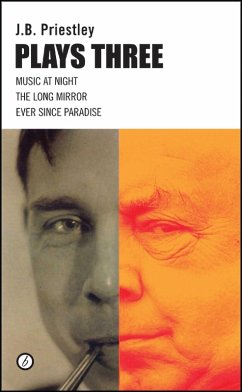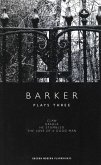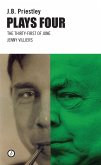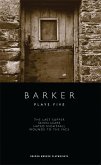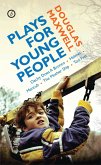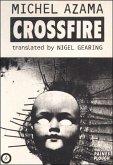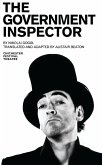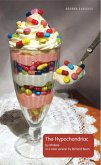Music at Night centres on a group of people attending a musical evening to hear a new work. Each act follows a movement in the music, which inspires the listeners to react each in their own way, looking inside themselves for their true feelings and sometimes remembering significant moments from their past. As often in Priestley's work, the relations between the sexes play an important part, a theme which recurs in the other two plays.
The Long Mirror recounts the meeting between a composer and a young woman who seems to have been telepathically connected to him for some time, and has experienced much of his life before actually meeting him. Her knowledge of his past can help his future as an artist and a husband. It was based on a true incident.
Ever Since Paradise he described as 'A Discursive Entertainment, chiefly referring to Love and Marriage in Three Acts'. Three couples are made up of The Musicians, the Commentators and The Example, and together they illustrate various aspects of relationships, accompanied by appropriate music on two pianos.
Hinweis: Dieser Artikel kann nur an eine deutsche Lieferadresse ausgeliefert werden.
The Long Mirror recounts the meeting between a composer and a young woman who seems to have been telepathically connected to him for some time, and has experienced much of his life before actually meeting him. Her knowledge of his past can help his future as an artist and a husband. It was based on a true incident.
Ever Since Paradise he described as 'A Discursive Entertainment, chiefly referring to Love and Marriage in Three Acts'. Three couples are made up of The Musicians, the Commentators and The Example, and together they illustrate various aspects of relationships, accompanied by appropriate music on two pianos.
Hinweis: Dieser Artikel kann nur an eine deutsche Lieferadresse ausgeliefert werden.

